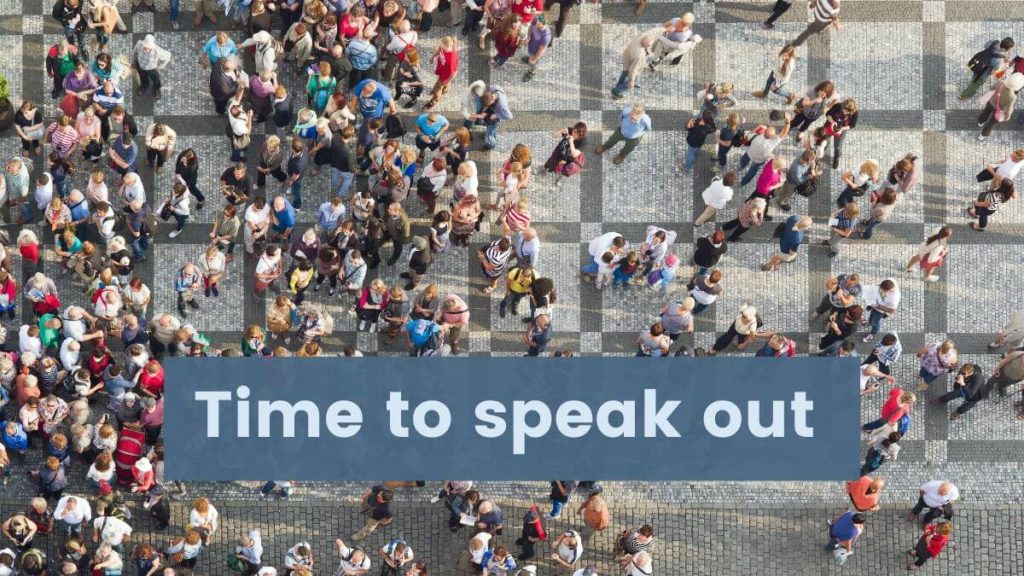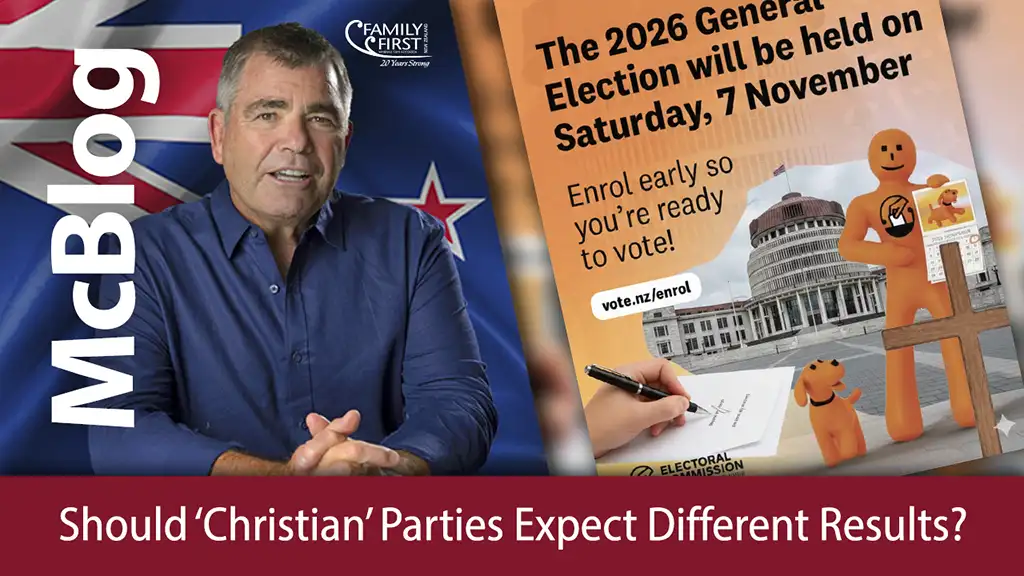What is the ‘Public Square’ and why is it so important to our democracy? Let’s explore the meanings and origins of the public square, and why we need more principled people speaking into it. There is certainly a battle for the minds of the New Zealand public, and lately it’s been a one-sided battle being won by left-leaning politicians and personalities supported by a left-biased mainstream media. Our democracy desperately needs a vibrant public square in which conservative truths are shared and destructive ideologies challenged. A public square full of spirited activity will create better democracies, so it’s high time we become more vocal.
Meanings and origins
At Family First we understand the Public Square as being:
“a rich environment of ideation, discussion and debate, that should be for the betterment of society as a whole. The Public Square is both a place of learning and of expression, a place of truth-sharing.”
Websters gives this definition of Public Square:
1: an open public area in a city or town where people gather (a place of assembly for the people)
2: the sphere of public opinion
So the ‘Public Square’ refers to places (and spheres of public opinion) in which ideas are developed and shared, where there is discussion and debate. This includes the realm of politics, however politics is only a subset of the public square. There is a broad range of activities beyond politics which also take place in this public forum.
The Public Square has long been a vital component of western democracies. Where democracy exists you will also find public squares.
The word democracy comes from the Greek words “demos”, meaning people, and “kratos” meaning power; so democracy effectively gives power to the people. The Ancient Greeks, considered the founders of Western civilisation, experimented with democratic models as an alternative to monarchical regimes. And we should not be surprised to find an ancient form of the public square, known as the “agora”, functioning as part of these fledging democracies. In Ancient Greece, the agora was a central public space in Greek cities that served as a meeting place for various activities of its citizens. The literal meaning of the word “agora” is “gathering place” or “assembly”. The agora was the centre of the artistic, business, social, spiritual and political life in the city.
So historically the Public Square was a physical place – a town square where the people gathered, where government edicts were announced, messages shared, sermons preached, ceremonies performed, debates and demonstrations held. Over time it has been broadened to mean not just a physical place, but also ‘the sphere of public opinion’. Today, the term ‘Public Square’ is used both literally and metaphorically as it is not limited to actual physical spaces, but includes virtual places on the web and social media.
Ultimately, the Public Square is a place for the communication of information and ideas to the general public, and for the discussion and debate of key issues. In the public square there are all sorts of debates going on about a range of topics, with demonstrations of sorts often occurring. Ideas flow and people connect through many different mediums – social media, radio, video, podcasts, publications, live events, and more.
According to Pell Center:
“Public square” is any place that a story can be shared: a newspaper, magazine, book, website, blog, song, broadcast station or channel, street corner, theatre, conference, government body and more… The origins lie in the colonial village square and the first printing presses, which published the pamphlets and newspapers that advocated the birth of a new nation. (Source pellcenter.org)
A healthy public square that is flourishing with activity will create better democracies, where citizens participate more in local decision-making. In essence it’s about free speech and participation, but it often leads on to political change as well as cultural change.
Importance of ‘speaking into the public square’
If you value democracy and free speech, then you should value the ability to speak into the public square. If you wish to see New Zealand changed for the better, then a vibrant unrestricted public square is essential. This is about giving a voice to citizens, free from political interference.
There have been many attempts (somewhat successfully) to control or limit free speech in the public square – socialism attempts to eliminate the public square altogether, while in Western democracies many politicians and their bureaucrats try to influence, manipulate and control the media, as well as control the dissemination of information. In New Zealand we’re seeing the extent to which this current Government controls our local media, with the $55 million “strings attached” Public Interest Journalism Fund, enormous Government spending on advertising media, and of course the upcoming mega-merger of TVNZ with RNZ creating a Government-controlled media colossus. There’s also the planned hate speech laws set to be introduced before the 2023 election, that would significantly limit freedom of speech and freedom of expression in New Zealand. When questioned on a definition of “hate speech”, Prime Minister Jacinda Ardern couldn’t give any precise definition (because there isn’t one), instead responding with the vague “you’ll know it when you see it”. This is both confusing and highly dangerous.
The ongoing witch hunt to root out “disinformation and misinformation” at first appears virtuous, but much of what’s being labeled as disinformation/misinformation is simply information which the Government does not like, as it doesn’t align with their “progressive” ideologies. The Disinformation Project Aotearoa even links conservative views on family structure and gender roles with far-right extremism, despite those traditional roles being foundational to our society over many centuries. (Listen to Bob’s McBlog episode on The Disinformation Project here).
We need to recognise that liberal “progressives” have significant control and influence within our most important institutions, particularly in the media, academia, the school education system, government agencies, city councils, and even parliament itself. This imbalance needs to be countered with more Christians and conservatives speaking into the public squares of social media, political forums, submissions to parliament, community meetings, school boards, church gatherings and so on. Public Squares are plentiful in our modern multi-faceted society, and foundational truths need to be spoken into a world that’s now hopelessly lacking in proven conservative principles and virtues.
If Christians and conservatives don’t act and don’t speak up, then our society will be increasingly influenced by extreme liberal ideologies. Apathy is not an option. Just as the person who doesn’t vote shouldn’t complain about those elected into government, those who don’t participate in the public square can’t really grumble as to the direction in which society is heading.
As woke liberals appear to have control of our institutions, let us not give up control of the public square – it’s the heart of democracy.
The role of Christians and other faiths
Frequent politicisation of the public square has resulted in many New Zealand Christians and faith groups tending to shy away from speaking there. Perhaps this reluctance partly comes from mis-understanding the concept of “separation of church and state”. As we’ve previously written:
“The modern usage of ‘separation of church and state’ is often an attempt to remove the influence of religion in politics and society, but this is completely incorrect and misleading. As we can see, the original intention was almost entirely to prevent Government interference into religion, but at the same time, not to affect the civil capacities of those professing their religion. Religion was viewed as a foundational support to governance.” (read more here)
So rather than avoid participating in the public square, people of faith should become increasingly more vocal with the intention of making New Zealand a better place to live and to raise a family. Knowledge and ideas rooted in faith draw from incomparable concepts of truth and goodness, especially teachings about the sacredness of human life and the central importance of family.
So let the speaking commence …
**This post was written by Family First staff writers.




